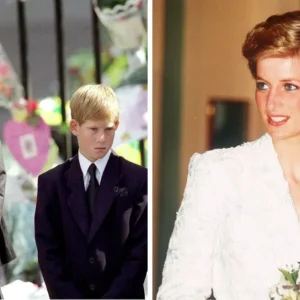In the tumultuous year of 1969, amidst a backdrop of escalating tensions in the Vietnam War, Creedence Clearwater Revival (CCR) unleashed a song that would become a powerful anthem for a generation. “Fortunate Son”, released on their Willy and the Poor Boys, wasn’t just a catchy rock tune; it was a scathing indictment of social inequality and the draft system that sent countless young men from working-class backgrounds to fight a war they didn’t understand.
While the song doesn’t explicitly mention Vietnam, its lyrics resonate deeply with the anti-war sentiment of the era. John Fogerty, CCR’s lead singer and songwriter, penned the song in a burst of frustration. He later explained that it wasn’t a condemnation of the war itself, but rather a critique of the unfairness that saw the sons of privilege escape military service, while those from less fortunate backgrounds bore the brunt of the draft.
Fogerty’s inspiration for the song stemmed from a growing sense of injustice. He referenced figures like David Eisenhower, grandson of a president, who enjoyed a comfortable military placement, while ordinary young men faced the very real possibility of being shipped overseas. The now-iconic opening line, “Some folks are born made to wave the flag, ooh, they’re red, white and blue” drips with sarcasm, contrasting the patriotic fervor of the privileged with the harsh reality facing the working class.
Fortunate Son” quickly transcended its status as a rock song. It became a rallying cry for the anti-war movement, a powerful symbol of the counterculture’s opposition to the Vietnam War. The song’s enduring legacy is a testament to its ability to capture the anger, frustration, and sense of injustice felt by a generation caught in the throes of a seemingly endless conflict.
The song’s impact wasn’t limited to the cultural landscape. “Fortunate Son” achieved critical acclaim, topping charts and earning recognition from prestigious institutions like the Library of Congress. It remains a powerful and relevant piece of music, a reminder of the human cost of war and the enduring fight for social equality.
News
MEGHAN MARKLE’S LATEST EFFORT UNDER FIRE: IS IT JUST SELF-PROMOTION?
Meghan Markle’s newest venture is facing criticism long before production has even begun! “The problem is I sometimes think Meghan can’t let go and wants it to be about her…” royal expert Rupert Bell dished on the “Kinsey Schofield Unfiltered” podcast. SOURCE:…
‘GOOD KING HARRY’: PRINCESS DIANA FELT THAT FUTURE ROYAL TELL-ALL SCRIBE WOULD MAKE ‘A BETTER’ MONARCH THAN PRINCE WILLIAM
Diana, Princess of Wales, once nicknamed her youngest son “Good King Harry,” due to his “general gusto” compared to the real future monarch and his elder brother, Prince William. “William doesn’t want to be king and I worry about that,” royal author Angela Levin wrote in…
FORGING HER OWN PATH: LADY LOUISE WINDSOR TO AVOID ‘ROYAL BURDEN’ AS SHE FOCUSES ON UNIVERSITY LIFE
Lady Louise Windsor, 20, and 16th in line to the British throne has decided to create her own path in life after previously contemplating a life of service to the Crown. “I think it’s probably too early to tell,” GBN’s royal correspondent Cameron…
“Royal Restructure Stumbles: Princess Anne’s Injury Puts Strain on Slimmed-Down Monarchy”
Prince William has reportedly taken King Charles III’s “slimmed-down monarchy” initiative to the extreme. But as the next king readies to slim down the Crown even more than his dad, a “severe warning” has been issued by some royal analysts when it comes…
FORTUNE FAVORS THE BOLD: KING CHARLES TO UNLEASH MONEY-MAKING STREAM AT ROYAL LODGE ONCE HE KICKS PRINCE ANDREW OUT
King Charles III is reportedly set to start a rental money-making stream once he finally boots his younger brother, Prince Andrew, from the Royal Lodge near Windsor Castle. “Rental of £1million a year is not far-fetched for a house of that size…
Jemele Hill Unleashes Furious Rant Claiming Caitlin Clark Receives Different Treatment From Media Compared To Black Players
Jemele and Caitlin Clark (Photo by Leon Bennett/Getty Images) (Photo by Andy Lyons/Getty Images) Jemele Hill has a serious issue with Caitlin Clark, but it’s not from something she did or said, but from the media who covers her. Caitlin Clark, the…
End of content
No more pages to load











